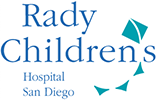Search results
-
Quadriceps Contusion for Teens
Quadriceps contusions are common in sports that have a lot of direct contact or a chance of collisions or wipeouts. Find out what to do if you get one - and how to avoid them.
-
Cardiomyopathy for Parents
Cardiomyopathy is when the heart muscle becomes weak and enlarged. This makes it hard for the heart to pump blood through the body. Treatments can help with the symptoms and sometimes stop it from getting worse, but usually there's no cure.
-
Strength Training for Teens
Is working out with weights safe for teens? The best way to build muscle tone and definition is to combine aerobic and flexibility exercises with the right kind of strength training.
-
Infant Botulism for Parents
Infant botulism can happen if a baby ingests bacteria that make toxins inside the body. Treatment can help a baby who gets it recover fully.
-
Tetanus for Teens
Tetanus is a bacterial infection that grows in a contaminated wound. Because it can be serious, it's important to get immunized. Find out more.
-
Polio for Parents
Polio is a contagious disease that can be prevented with vaccination.
-
Tetanus for Parents
Tetanus (also called lockjaw) is a preventable disease that affects the muscles and nerves, usually due to a contaminated wound.
-
Strains and Sprains for Teens
Sprains and strains are common injuries, especially for people who play hard or are into sports. Find out what they are and how to recuperate from one.
-
Hernias for Teens
A hernia is an opening or weakness in the wall of a muscle, tissue, or membrane that normally holds an organ in place. Learning to prevent hernias isn't hard to do - check out these tips.
-
Spinal Cord Injuries for Parents
A spinal cord injury is when the spinal cord gets cut, bruised, stretched, or poked. It can change the way the body moves, feels, and functions.

 Note: All information is for educational purposes only. For specific medical advice,
diagnoses, and treatment, consult your doctor.
Note: All information is for educational purposes only. For specific medical advice,
diagnoses, and treatment, consult your doctor.